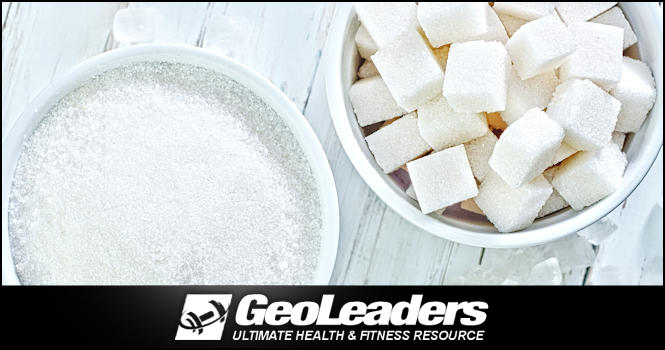A ketogenic diet is a powerful weight loss strategy that is also sustainable as well. This article compares a keto vs. low-fat diet to show which is better.

Much has been said over the years about low-carb ketogenic diets for weight loss and overall health.
And with celebrities and athletes being fond proponents of this type of diet, there is no doubt as to why it remains so popular.
But is eating a low-carb ketogenic diet actually better for weight loss than a low-fat diet?
In this article, we’ll take a closer look at these two types of weight-loss diets and compare them for effectiveness.
Keto vs. Low Fat Diet – Which One Is Best?
Over the years, most people trying to lose weight followed a low-calorie low-fat diet because it was just the thing everyone did.
But while some still swear by reducing fat intake to lose weight, recent studies have actually shown that low-carb ketogenic diet plans are actually better.
Ketogenic diets have been proven to be more effective for both weight loss and reducing high cholesterol levels.
Here’s why the keto diet is superior for weight loss.
What Is A Ketogenic Diet?
First off, let’s take a look at what a ketogenic diet actually is.
There are many different types of low-carb diets, but the ketogenic diet is the most aggressive.
This is because this diet limits your carbohydrate intake to 20-40 grams per day.
The keto diet requires your body to enter into a state called ketosis, where fat is the primary source of fuel.
Ketosis generally does not occur until you are consuming an average of 20 grams of carbohydrates per day.
A Sample Ketogenic Meal Plan
Ketogenic diets are simple to implement because of the nature of the foods you will be eating.
Here is a sample menu plan for a day’s worth of eating when you’re on a ketogenic diet.
This is what your day will look like:
Breakfast:
- 3 links of sausage or strips of bacon
- 3 whole Omega-3 eggs
- Coffee with heavy whipping cream, MCT or coconut oil and Stevia
Snack:
- 1 ounce of cheese with cucumbers or
- 2 tbsp all-natural peanut butter with celery
Lunch:
- Tuna salad or egg salad wrapped in lettuce or
- Lettuce wrapped bacon cheeseburger
Snack:
- ½ avocado or
- 10 olives or
- Flaxseed crackers
- Homemade salsa
Dinner:
- Roasted chicken thighs with a side of broccoli or cauliflower drizzled with butter
- Steak with vegetables drizzled with butter
- Large salad with pepperoni and cheese drizzled with olive oil and vinegar dressing
- Grilled bourbon salmon with a side of spiral cut zucchini with alfredo sauce
One of the benefits of this diet is that you can snack between meals with no problem.
Snacks can be simple and include the following:
- String cheese
- Cup of bone broth
- A handful of almonds or peanuts
- Turkey or ham and cheese lettuce wraps
- Hard-boiled Omega-3 eggs
- Smaller portions of leftover meals
- 1 tablespoon of MCT or coconut oil
Feeling Satisfied And Avoiding Hunger
The ketogenic diet is typically much more about choices instead of deprivation like a low-calorie, low-fat diet.
On a keto diet, you get to eat a wide variety of whole, delicious foods with lots of satisfying meals that include:
- Wide variety of red meat
- All cuts of chicken
- All seafood
- Various cheese
- Non-starchy vegetables
- Healthy fats and oils
Ask anyone who has done both types of diet and you find that it’s much easier to follow keto than a low-fat diet.
Low-carb diets help to regulate your appetite and naturally satisfy your hunger so you end up eating less.
And all of this without suffering hunger pangs and starvation.
This is because not eating any carbohydrates also eliminates any spikes in blood sugar that cause uncontrollable cravings and hunger.
The Long Term Sustainability Of Keto
One of the most important considerations when it comes to any diet plan is its actual sustainability over the long haul.
So the question is: can you sustain this diet over the long term?
Sustainability is important because the overall measure of success is the individual’s ability to keep the weight off for the long term.
So in regards to sustainability, the keto diet wins every time over low-fat because you are always going to be satisfied.
And when you are completely satisfied, you are not going to be tempted to cheat throughout the day.
When this happens, the probability of long-term success increases exponentially.
This is one of the main reasons that any low-carb protocol is considered a lifestyle and not just a fad diet.
What Do The Studies Show?
I know this all sounds great, but I’m sure you want to know what actual studies show.
A study performed by the Duke University Medical Center in Durham, North Carolina compared the keto diet with a traditional low-fat diet program. [1]
The experiment lasted 24 weeks and the researchers discovered that more participants in the keto group made it through the study than those on a low-fat diet.
They also discovered that the participants in the keto group also lost more weight while experiencing a greater decrease in triglyceride levels.
This concludes that a typical low-fat diet is just a temporary weight loss diet.
It would be hard for anyone to sustain this way of eating because of the constant hunger and temptations to break the diet.
On the other hand, the ketogenic diet has far fewer restrictions and actually increases satiety, so it is much easier to maintain over the long term.
And what that all boils down to is that any weight you lose stays off for good.
More Studies Support Low Carb Diets Over Low Fat
Since 2002, more than 20 randomized controlled trials have been published in respected, peer-reviewed journals.
that demonstrate the fact that low-carb diets are more effective for weight loss and completely safe without a single adverse effect.
this cannot be said about many of the fad diets.
Several studies, including those by Volek et al, Phinney, et al, Keogh et al, Westman et al, and Gardner et al have shown carbohydrate-restricted eating leads to weight loss, improved body composition and increased metabolic performance. [2],[3],[4]
Studies have also linked carb-restricted diets to improved HDL levels, improved insulin levels, improved blood sugar levels and improved blood pressure when compared to low-fat diet plans.
Final Thoughts On Keto vs. Low-Fat
All of the information presented above supports the fact that a low-carb ketogenic diet wins every time over a traditional low-fat diet.
You can lose more weight while staying hunger-free for long-term weight loss.
You’ll also be reducing your risk for diet-related health problems such as heart disease, diabetes and cancer.
What are your thoughts on a ketogenic diet versus a low-fat diet? Please leave your feedback in the comments section below.



